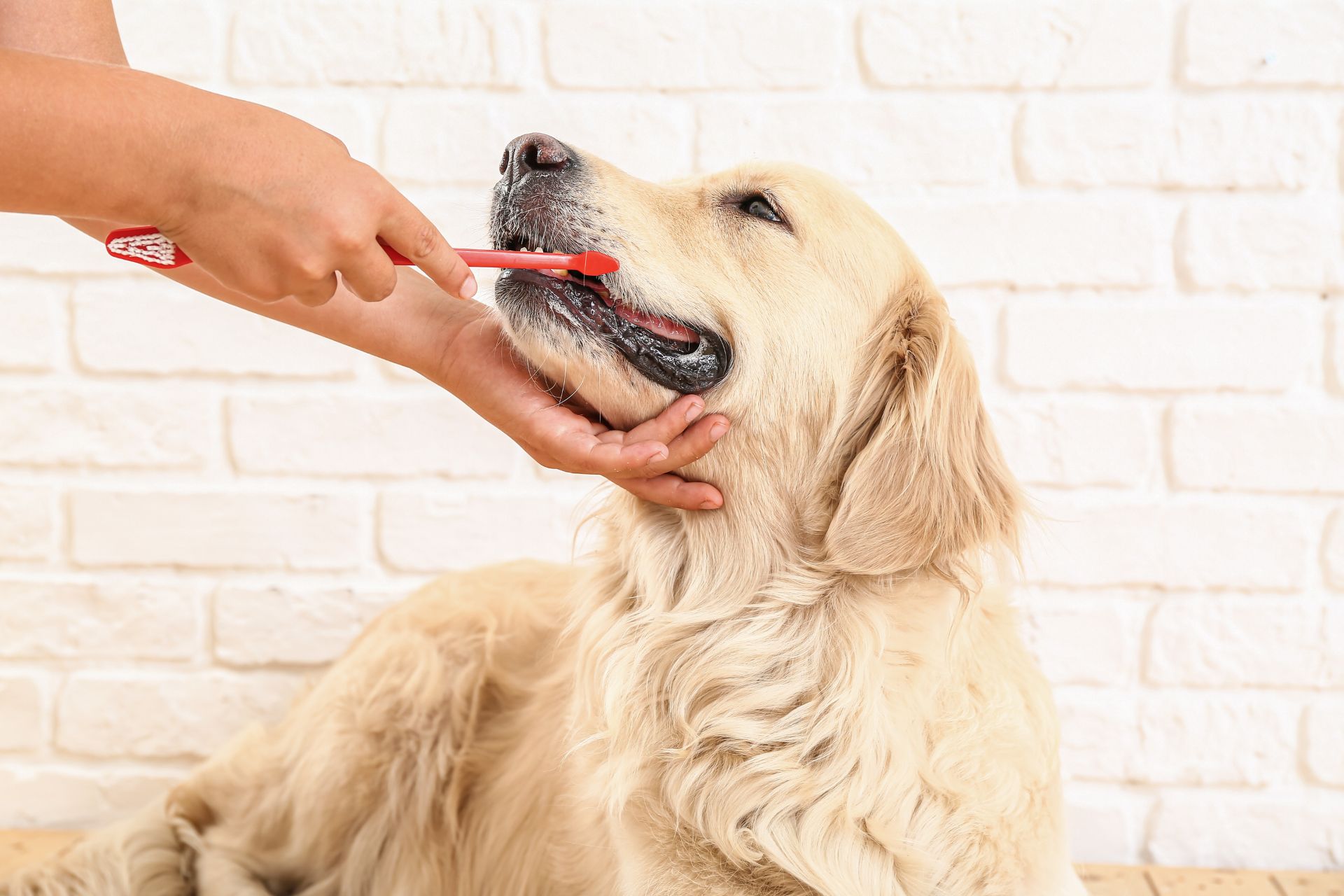Veterinary Services
Dentistry
Your pet’s oral health is more important than you may think. We can help you keep your pet’s teeth healthy, which also helps their overall health!
Dentistry
Dental disease can be prevented by being diligent about your furbaby’s oral health. Just like humans, every pet’s mouth is different. Annual and semi-annual (in older pets) dental checks and cleanings are necessary to maintain good oral health.

Dentistry
According to the American Veterinary Dental Society, 70% of adult cats and 80% of adult dogs show symptoms of oral disease by the age of 3 years. Exceptionally bad breath, a brownish plaque at the base of the teeth, excessive drooling, sore or bleeding gums when eating or chewing, and decreased appetite can all be signs that a pet’s teeth require attention.
How often should my pet’s teeth be cleaned?
In addition to wellness exams and routine dental cleanings, home care is so important. It’s important to keep up with your pet’s annual wellness exams so that we can determine the need for complete dental cleaning.
For routine dental care, we recommend annual dental exams and cleanings or possibly more frequent ones, depending on your pet’s specific needs. These exams are ideal for assessing your pet’s overall dental and oral health; with these exams, we take a comprehensive look at your pet’s teeth and gums to look for signs of cavities, gum disease, and other problems that need to be addressed. From there, we can recommend further treatment. We can perform most dental treatments right here in our office, and they are done under anesthesia to ensure that your pet is safe and comfortable. If needed, we will also perform any pre-treatment blood work, which can help us determine that anesthesia is safe for your pet.

